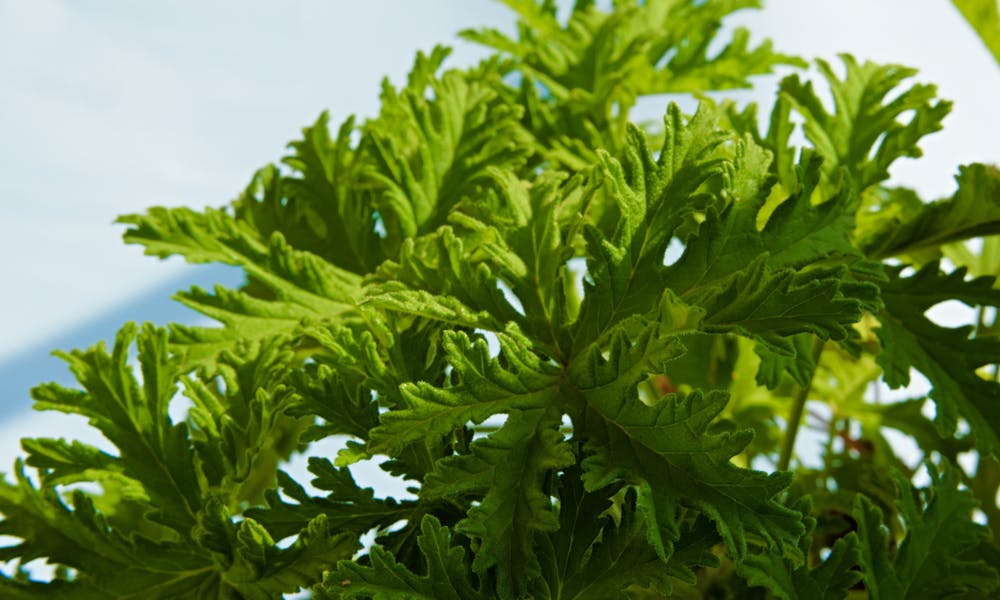MENU
Mosquito Repellant Plants: Top 5 Plants That Naturally Repels Mosquitoes

Summer brings about longer beach hours, picnics, and sadly, mosquitoes. This relentless insect can be annoying, but what makes them dangerous is the health risk they pose to human beings. A Mosquito bite can lead to a wide range of diseases, and although they can simply be treated with medication, nobody enjoys falling sick. During warmer seasons, mosquitos are most prevalent, and we can’t get away from them because we secrete compounds that attract them to us. These insects are generally attracted to warm bodies, and, specifically, the carbon dioxide emitted from our breath.
Instead of dousing your garden with harmful and foul-smelling chemical sprays, there is a more natural way of getting rid of these insects. Plants have been used through the ages to heal, and now you can also use it to get rid of mosquitos. This mosquito repelling plants uses their natural fragrance to keep mosquitoes at bay and, at the same time, nourishes your garden with an incredible aroma.
This article is going to address the following points:
* Why we need to repel mosquitoes
* How can plants repel mosquitoes?
* Five mosquito repellant plants
* Where to place mosquito repellant plants
Why We Need To Repel Mosquitoes
Mosquitoes are one of the dangerous insects on earth, and most times, people disregard or underestimate the harm this little insect can cause. Malaria, Zika fever, dengue, and yellow fever are one of the few diseases this insect can infect us with. According to the World Health Organization, more than 50 percent of the world’s population is at risk of mosquito-borne diseases.
Keeping the harmful nature of these insects aside, nobody wants this annoying insect buzzing around them all day. This is the reason why people invest in bug and chemical sprays or plants to drive these insects away from their environment.
How Can Plants Repel Mosquitoes
You must have come across articles or stories about the existence of some plants that contain specific properties that are capable of repelling mosquitoes. Those articles are right, although only cultivating these plants is not the answer to the total eradication of mosquitoes. Some of these plants require you to crush or burn their leaves to release the aroma for repelling mosquitoes. This extra step doesn’t mean you shouldn’t grow these plants; you just have to be ready to go the extra mile in ensuring your environment is free from these insects.
These mosquito repelling plants contain a substance called citronella, which is capable of fending off mosquitoes. The substance has to get into the air, and not all plants naturally spew this substance into the air. It might seem like extra work to burn these plants, but the result gotten from doing just that is worth it.
Mosquito Repellant Plants
A handful of the plants listed below, like basil, releases a distinct scent that drives mosquitoes away. Are you tired of using toxic chemicals to rid your home or office of these blood-sucking insects, and you are more interested in a natural remedy? Continue reading to know the top five plants that naturally repel mosquitoes.
Citronella
This plant is also called pelargonium citrosum, mosquito plant geranium, and citrosa geranium and can mostly be found in mosquito repellant sprays and candles. It has a strong scent that conceals the smell of other compounds that attracts mosquitoes, for instance, carbon dioxide. It works better when it is crushed and rubbed on the skin. Citronella is mostly cultivated in planters but can also flourish when planted in a garden. This plant should be placed in an area with no frost. It can be grown outdoors and taken inside when the first frost arrives. This plant requires low maintenance and accommodates a variety of soils.
Basil
Basil is not only a culinary herb but can also be used to repel mosquitoes. Unlike other mosquito repellant plants that require you to crush or burn them, basil naturally exudes its aroma, saving you from any extra stress. The scent emitted by basil is toxic to mosquitoes, so you can place it close to a water source to prevent them from laying eggs. Basil is easy to cultivate, but it can only germinate outdoors and during summers.
Catnip
Catnip contains a durable mosquito repellant called nepetalactone. This chemical is useful in the fight against mosquitoes, making it one of the best ways of fending off these insects. Catnip can be planted in the spring or fall and flourishes well in full sun and constant watering. However, you should note that this plant is highly invasive and can take over your garden.
Lavender
This plant cannot only soothe or calm your mind, but it can also chase away mosquitoes. It releases a strong scent that keeps the mosquitoes at bay. Lavender can be planted both outdoors and indoors and should be planted in the spring when the soil is just heating up.
Lemongrass
Lemongrass, also called lemon verbena, contains a high level of citral, an oil that can be found in most mosquito repellant sprays. Lemongrass best grows in the spring, under direct sunlight, and in fertile, well-drained soil. You can cultivate this plant in a large planter so that it can be conveniently moved around and placed where it is most needed.
Where To Place Mosquito Repellant Plants
These plants can be planted in your garden, around the sitting or relaxation areas of your garden. You can cultivate these plants in a pot and place it on your patio, close to your windows, doors, or around water. For more effective results, explore your environment for places that these insects are naturally drawn to and place a mosquito repellant plant there.
However, ensure that you are not allergic to whatever plant you intend on cultivating. Consult with a physician or professional to verify that these plants are not in any way harmful to your skin.

